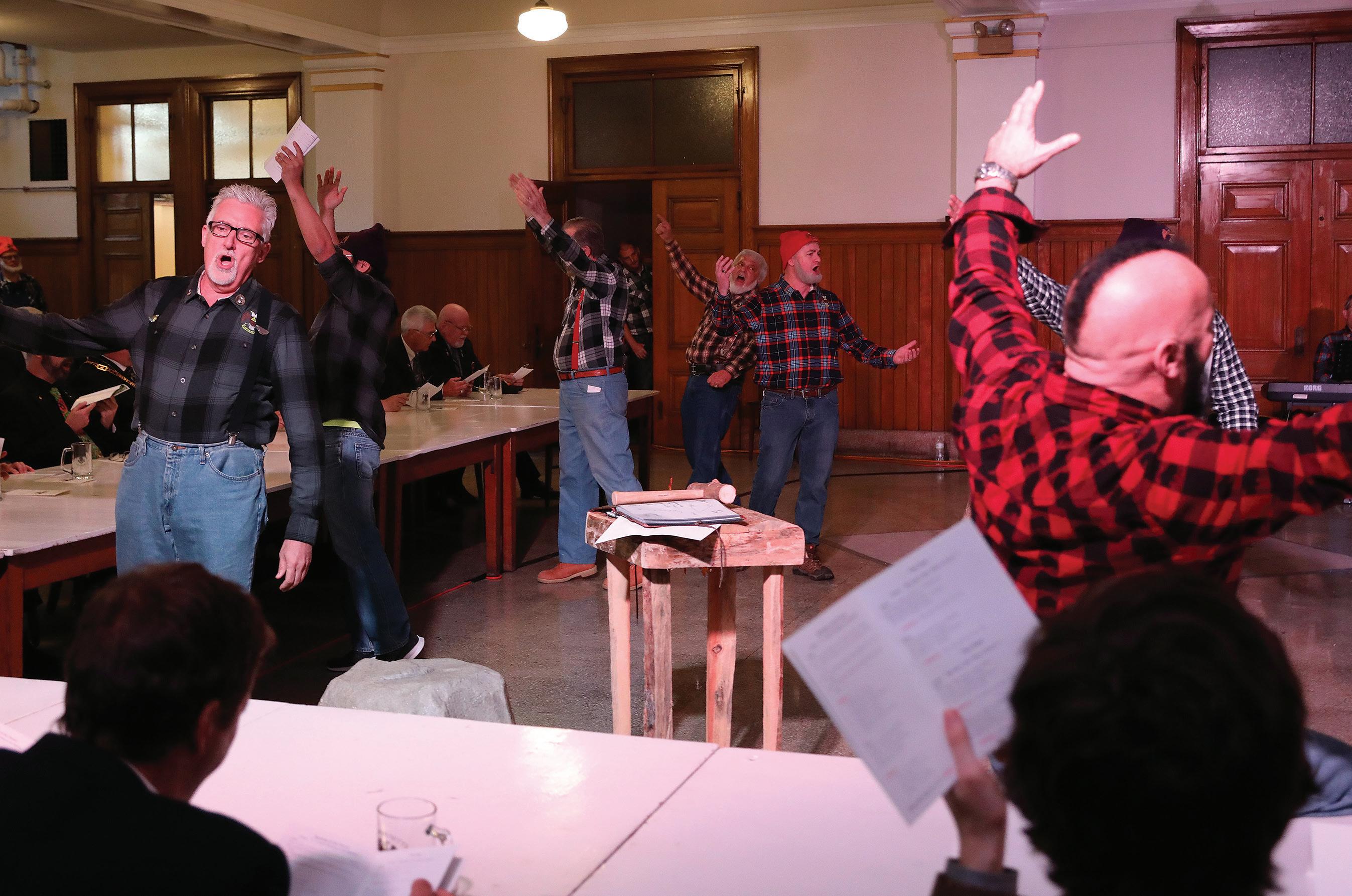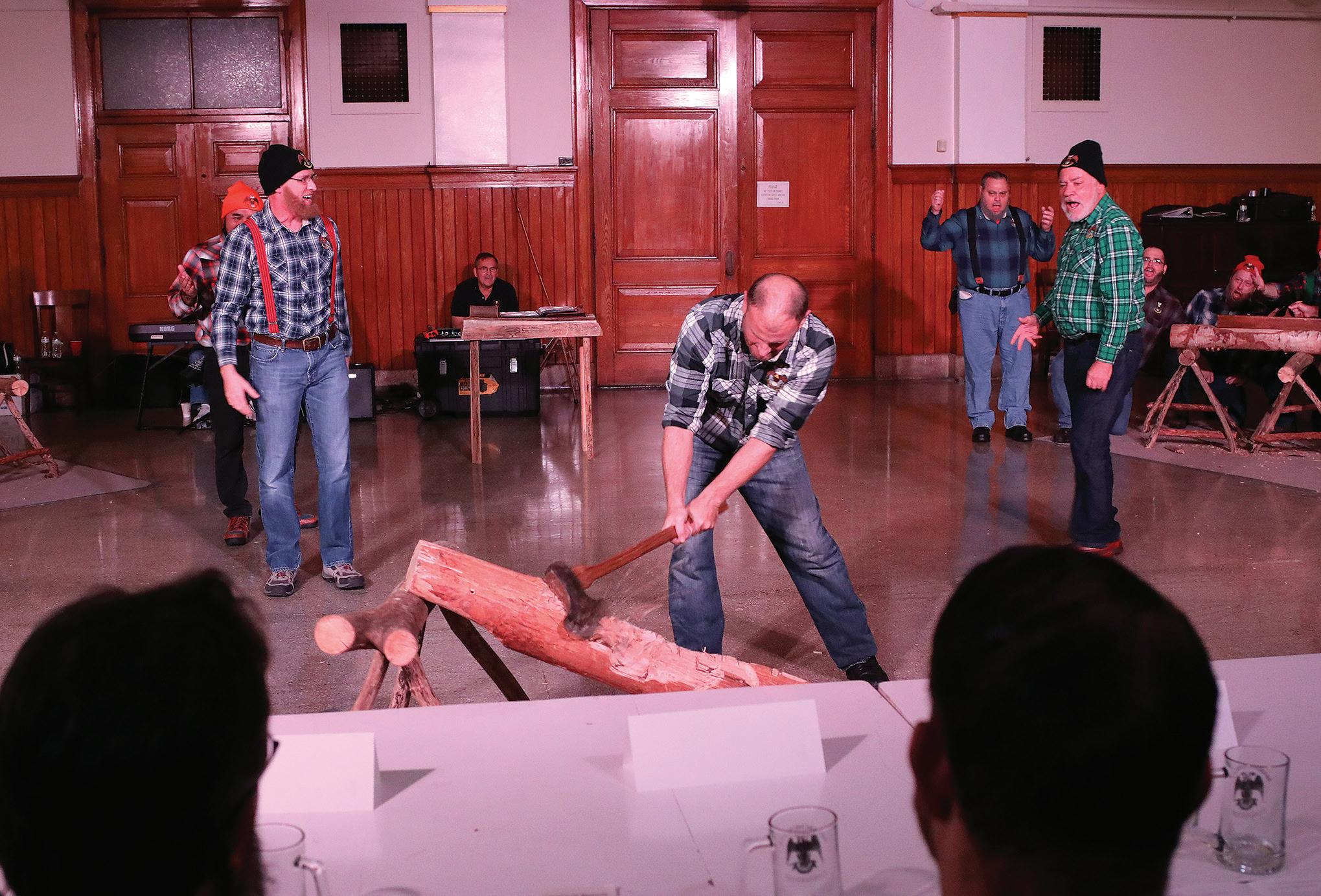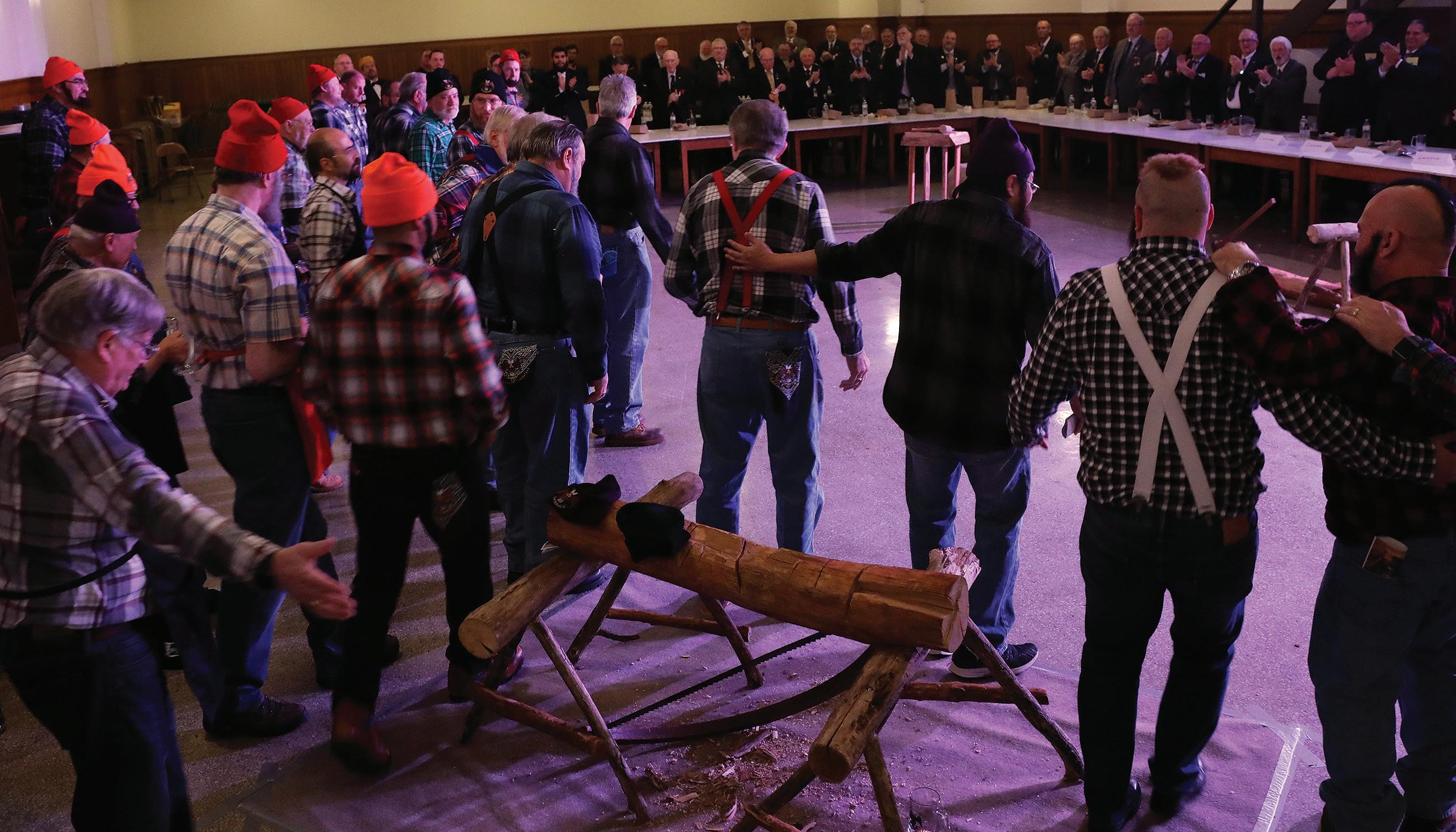
5 minute read
22nd Degree

Princes Among Men 22ND DEGREE
by Thomas R. Labagh, 33° Active Member for Pennsylvania Member of the Committee on Ritualistic Matters
If you happen to be one of the rare people who not only likes your work but thinks you have the best job in the world, you are a very lucky person. More importantly, you are an exemplary Mason!
The Twenty-second Degree, Prince of Libanus, emphasizes work ethics. By doing good work, we improve our character and become better citizens.
It should be understood that Libanus is actually Lebanon, and that, according to traditional history, it was the Sidonians who cut down cedars on Mount Hermon (1) for the building of Noah’s ark, (2) for the Ark of the Covenant, (3) for Solomon’s Temple, and (4) for use by Zerubbabel as he rebuilt the Temple.
The action is very straightforward. The single scene opens on a College of Sidonians who are at work in the forest—hewing, sawing, planing, copying designs, and so forth. The Candidate, a high-born Prussian Knight at the time of the Crusades, enters and seeks admission to their craft and fellowship. He is denied entrance unless he can perform satisfactory labor. This being proven through a series of tests of his skill, he becomes a Knight of the Royal Axe. End of story.
This is one of our older degrees. It actually has a parallel degree in the Southern Masonic Jurisdiction which further attests to its age. It was referenced in the Francken Ritual of 1783 but was nothing more than a recitation of the legend and a list of names to be remembered and venerated. Albert Pike, who wrote that very thick and weighty tome, Morals and Dogma, was at his most understandable when writing about the 22nd Degree.
“Masonry has made a working-man and his associates the Heroes of her principal legend, and himself the companion of Kings. The idea is as simple and true as it is sublime. From first to last, Masonry is work. It venerates the Grand Architect of the Universe. It commemorates the building of a Temple. Its principal emblems are the working tools of Masons and Artisans. It preserves the name of the first worker in brass and iron as one of its passes. When the Brethren meet together, they are at labor. The Master is the overseer who sets the craft to work and gives them proper instruction. Masonry is the apotheosis of work…” which means, work in its highest and most developed and most challenging state.
achieve nothing, fulfill nothing, without working. It is better for the Mason to live while he lives, and enjoy life as it passes: to live richer and die poorer. It is best of all for him to banish from the mind that empty dream of future indolence and indulgence; to address himself to the business of life, as the school of his earthly education; to settle it with himself now that independence, if he gains it, is not to give him exemption from employment.”
“It is best for him to know, that, in order to be a happy man, he must always be a laborer, with the mind or the body, or with both: and that the reasonable exertion of his powers, bodily and mental, is not to be regarded as mere drudgery, but as a good discipline, a wise ordination, a training in this primary school of our being, for nobler endeavors, and spheres of higher activity hereafter.”
Having written its philosophy, Pike also wrote most of the text in 1855, and with few alterations, that text is what we now perform.
Now, let me tell you why this Degree is unique: it is one that can make people smile! It can be played for comedy— not that the lessons are funny, or any less important, but that we, as human beings, can learn and laugh at the same time. There is nothing funny about most of the Scottish Rite Degrees, but the 22nd Degree can actually
encourage laughter and frivolity while teaching important Masonic values.
In 1931, a musical version of the degree was developed by Ill. Julius B. Christman, 33°, founder and director of the Choir of South Bend (Indiana) Consistory, and by Ill. Otto J. Goffeney, 33°, of South Bend, then Grand Organist of the Supreme Council. It was filled with joyful music, in the style of a Gilbert and Sullivan operetta. That version was retired in 1993, and the new musical version is filled with simple, happy music—the folk songs of our childhood—the music of our American heritage. It can be performed with or without music. The language of the degree did not change. It is purposely simplistic. No political intrigue or great religious truth is being dramatically portrayed. It is a simple affirmation of the responsibilities of leaders and citizens in our world.
Bro. and Dr. Jim Tressner, a scholar of modern Scottish Rite Masonry, reminds us that the Scottish Rite teaches each person to be responsible and productive, not just in his own life but in the lives of others. The Scottish Rite Mason who holds the 22° is pledged to the support of civilization and culture and, above all, to work to assure those goals.
Masonry teaches the concept that all work is honorable. Scientists and authors labor with their minds. Construction workers and farmers labor with their whole physical body. Both are to be equally respected for their persistence and motivation. It has been said that “a society which honors its philosophers, while sneering at its plumbers, will soon discover that neither its pipe nor its ideas will hold water.” A common quote found on the internet, with an unknown origin, but most recently attributed to a 2008 issue of the Valley of Sioux City’s newsletter, states that “Work should not be regarded as a curse but a blessing. To be able to work, to create something, whether it is a poem, a piston, or a pot roast is a priceless privilege, in which God allows us to participate in His creative nature.”
The Master Workman in the 22nd Degree, when instructing the candidate on the use of the axe, says this: “The axe is mightier than the sword. The sturdy pioneer, armed with the axe, strides onward in advance of civilization. As the great trees fall before him, never to rise again, so Masonry hews at the trees of INTOLERANCE, BIGOTRY, and SUPERSTITION, to let the light of reason and truth shine upon the human mind.”
If we never learn another Masonic lesson, or practice another Masonic virtue, defeating intolerance, bigotry and superstition would make us princes among men. And it certainly should be enough to justify expanding the influence of Freemasonry around the world.
So mote it be!











